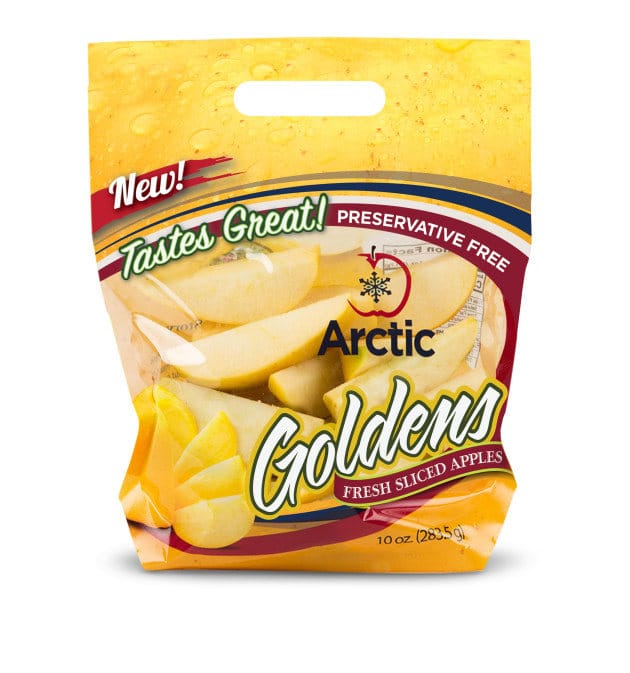Written by Foodservice Magazine.
The CSIRO has today announced that a unique type of apple that they helped developed will go on sale at select US supermarkets.
Arctic Golden apple, developed in conjunction with Canadian biotech company, Okanagan Specialty Fruits Inc. (OSF), does not turn brown when cut, bitten or bruised.
OSF is the first company in the world to license CSIRO’s non-browning technology.
Arctic Golden apple slices will be available in snack-sized bags, with OSF hoping to offer more non-browning varieties in future, including Granny Smith and Fuji.
CSIRO scientists constructed an anti-PPO gene which, when inserted into plants, blocks the production of PPO and therefore stops the browning.
Neal Carter, founder of OSF, first began working on non-browning apples in the mid-1990s.
He says, “I came across research from CSIRO that had managed to ‘turn off’ browning in potatoes. As an apple grower, I was very aware that apple consumption had been declining for decades while obesity rates had simultaneously been sharply rising.
“My wife and I felt that we could help boost apple consumption through a similar biotech approach with apples, as non-browning apples would be more appealing and convenient. We felt this could also significantly reduce food waste, as nearly half of all apples produced end up wasted, many due to superficial bruising.”
Supermarkets have long offered sliced apples, however, these products are typically coated with vitamin C and calcium to prevent browning and to preserve crispness. This process can also change the apple’s taste.
Apples, like other fruit and vegetables, turn brown after they are cut or damaged because of a naturally occurring enzyme (polyphenol oxidase or PPO) that reacts with other components in the fruit cells when these cells are ‘broken’, producing a brown pigment.
CSIRO scientists constructed an anti-PPO gene which, when inserted into plants, blocks the production of PPO and therefore stops the browning.
From a food waste perspective this research has the worldwide potential to save billions of dollars every year, particularly once the non-browning technology is able to be applied to important horticultural crops, such as beans, lettuce and grapes where produce with only small injuries could still be sold.
For futher information, please visit csiro.au.

